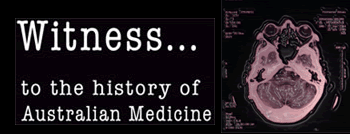


Tobacco Control: Australia's Role
Transcript of Witness Seminar
Introduction
Building the case for tobacco control
Producing, and Responding to, the Evidence
Campaigning for Tobacco Control
Economic Initiatives in Tobacco Control
The Radical Wing of Tobacco Control
Revolutionary Road
Tobacco Industry Strategies and Responses to Them
Campaign Evaluation
Managing Difficulties in Light of Community Consensus
Radical Wing Again
The Process of Political Change
Tobacco Campaigns Up Close
A Speedier Pace of Change
Political Needs and Campaign Strategies
Litigation and its Impacts
Insights from Tobacco Control
Tobacco Control in Australia in International Perspective
Appendix 1: Statement by Anne Jones
Endnotes
Index
Search
Help
Contact us

Mike Daube: Can I just go back to South Australia for a second.
John Cornwall has been mentioned and, in his memoirs, he tells the story of his conversation with the SA Premier, John Bannon,[129] about tobacco and alcohol which culminated with Bannon saying something like, ‘You can have tobacco and I’m keeping alcohol’.[130] This is the sort of thing that we can only speculate about, these really tough conversations that go on at the heart of government and that tell us which of the politicians really pushed internally. And we’ll never know some of these stories. But I think that just gives a bit of an insight, and good on Cornwall for doing the pushing as with some of the other ministers we’ve talked about today.
Lyn Roberts: And I think in the early days there was a nervousness both from Cornwall, and a bit from the Anti-Cancer Foundation and others, about whether Bannon really was supportive (of tobacco control legislation) behind the scenes.
I’ve got no idea, John (Cain), if you ever had conversations with him (Bannon) at the time. But we had a strategy that involved Tony McMichael[131] who headed up the {University of Adelaide} Department of Community Medicine at the time and was an occasional tennis player with John Bannon. It was one of those other things that Steve Woodward helped orchestrate - an occasional tennis game with Tony McMichael and the Premier quite early on after Cornwall had indicated that he was interested in doing something.
John Cain: I can’t help you. They were early into mirroring legislation, that’s my recollection.
Lyn Roberts: And we were told that if a campaign was run Bannon would be supportive of it. Do you know anything about that, Mel, or what was going on in the (Health) Department?
Melanie Wakefield:[132] No, I wasn’t senior enough. I was working as a research officer in the Health Promotion Services. Jim Cowley[133] was the first director of that before he moved on. Phil Rubinstein worked there and had all these ideas coming out of the corner room. I was thinking, what kind of background does that guy have? There’s no psychology there, it’s more marketing. It was quite a different background and it was very foreign.
Then Simon (Chapman) came along for a few years as Director of the Health Promotion agency. We did research inside government that supported some of the elements of that bill that went through including banning the sale of cigarettes in pack sizes less than 20. That research was published.[134]
Lyn Roberts: That was probably the ‘86 bill that went through and the ‘87 Amendment Act.
Simon Chapman: Bernie McKay[135] was the head of the South Australian Health Department. I knew him from NSW. He got in contact with me when I was working in Penang and asked me to come down (to South Australia). I wasn’t even interviewed for the job (as Director of the SA Health Promotion Services). The first week I was there I went to lunch with (John) Cornwall and his boss, ‘Spider’ Webb [136](Laughter). We all went to a Thai restaurant and Cornwall got out a napkin and said, ‘OK, what are all the things we’re going to do?’
I spilled everything I could think of and he wrote them all down. And that was the campaign that has been spoken about. But it was the two Democrats – Ian Gilfillan and Mike Elliott - who were easy to convince to support it.
Tom Roper: Those contact things are quite important, because both Bannon and Tony (McMichael) were presidents of the SA students association. So they were very closely in touch until Tony died last year.
Ann Westmore: On that note, let’s break for lunch, and return in an hour.
BREAK
 |
Witness to the History of Australian Medicine |  |
© The University of Melbourne 2005-16
Published by eScholarship Research Centre, using the Web Academic Resource Publisher
http://witness.esrc.unimelb.edu.au/149.html